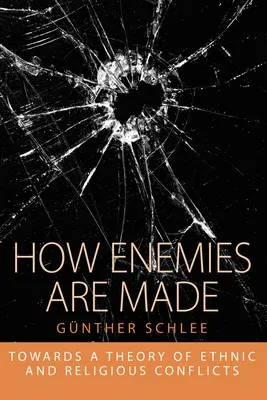Günther Schlee
(Author)How Enemies Are Made: Towards a Theory of Ethnic and Religious ConflictHardcover, 1 September 2008

Qty
1
Turbo
Ships in 2 - 3 days
In Stock
Free Delivery
Cash on Delivery
15 Days
Free Returns
Secure Checkout

Part of Series
Integration and Conflict Studies
Print Length
206 pages
Language
English
Publisher
Berghahn Books
Date Published
1 Sep 2008
ISBN-10
1845454944
ISBN-13
9781845454944
Description
Product Details
Author:
Book Format:
Hardcover
Country of Origin:
US
Date Published:
1 September 2008
Dimensions:
22.86 x
15.24 x
1.27 cm
Genre:
Religious
ISBN-10:
1845454944
ISBN-13:
9781845454944
Language:
English
Location:
New York, NY
Pages:
206
Publisher:
Weight:
444.52 gm